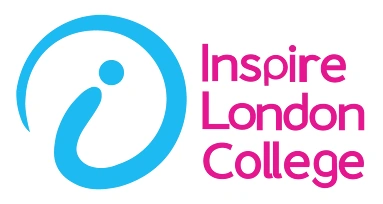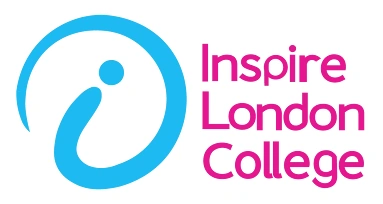In today’s fast-evolving world of education and career growth, selecting the right training program is crucial. With so many options available, it can be challenging to decide what to choose. Some courses come with official recognition, making them valuable for career advancement, while others focus on skill-building without formal approval. So, understanding the difference between accredited and non-accredited courses can help you select the best path to achieve your career goals this year.
In this article, we’ll explore the key differences between accredited vs. non-accredited courses, helping you determine which option is best suitable for you.
What are Accredited Courses?
Before diving into the differences between accredited vs non-accredited courses, it’s important to understand what these terms mean.
Accredited courses meet strict regulatory and quality standards set by recognised education authorities. They are nationally recognised and equip you with skills and knowledge that align with industry standards, ensuring you are job ready upon completion. In fact, employers and professional organisations prefer candidates with accredited qualifications over others. Accredited courses are perfect for you if you are seeking career advancement, want to work in a regulated industry, or looking for any formal qualification to add to your CV.
Benefits Of Accredited Courses
Choosing an accredited course can have a significant impact on your career growth. Let’s explore some key benefits of accredited courses:
Industry Recognition
One of the major benefits of accredited courses is that they are industry recognised. Employers actively seek candidates whose qualifications meet the standards set by regulatory bodies. That is why institutes regularly update their accredited programs to match industry standards and ensure you get real-world skills to secure exciting job opportunities.
Practical Skill Enhancement
Unlike general training programs, accredited courses offer structured learning with a strong focus on practical application. This means you not only gain theoretical knowledge but also develop hands-on experience, making your learning more effective. Whether you’re studying business management, healthcare, or technology, accredited courses ensure that you apply what you learn directly to real-world tasks, consequently enhancing your skills, confidence, and efficiency. This combination of theory and practice sharpens your expertise, making you a valuable asset in any professional setting.
Increase Job Satisfaction
When you have a recognised qualification in your resume, it not only boosts your confidence but also enhances your job security. In fact, based on a London School of Planning and Management study, 87% of employers prefer candidates with accredited qualification as they demonstrate a high standard of knowledge and skills. So, the accredited training equips you with the necessary skills, making you more competent and valuable in the job market.
Better Career Opportunities
Accredited courses greatly enhance your career prospects by opening doors to better job opportunities, promotions, and even international roles. Many industries require employees to obtain certified qualifications before moving into leadership positions. Surprisingly, individuals with accredited qualifications often earn up to 25% higher salaries compared to those with non-accredited ones. Therefore, earning an accredited certification can significantly improve your chances of securing higher-level roles within your field. Consequently, you not only strengthen your employability but also boost your potential for long-term career growth and financial stability.
Networking Opportunities
Accredited courses also offer significant networking opportunities, bringing together a diverse group of students, instructors, and industry professionals. These programs provide you a platform where you can build valuable connections. In addition, you can meet influential professionals who offer mentorship, advice, and potential job opportunities by participating in industry events, workshops, and alumni networks. Consequently, these connections help you expand your professional circle, leading to collaborations and career growth.
What are Non-Accredited Courses?
Now let’s understand what is a non-accredited course? Non-accredited courses are the training programs that an accreditation body has not officially approved or recognised. With a focus on specific skills and knowledge areas, these courses are often designed for personal and professional development without leading to a formal qualification. Hence, these training programs are ideal for individuals seeking personal development or professionals looking to upskill in specific areas without the need for formal recognition.
Benefits Of Non-Accredited Courses
Just like accredited courses, non-accredited programs also offer some benefits which are as follows:
Flexibility and Customisation
Non-accredited courses provide flexible learning options, allowing you to study at your own pace. Unlike accredited programs, they do not follow rigid structures, so you can choose topics that match your personal or professional goals. Whether you prefer online learning, self-paced study, or short workshops, these courses adapt to your schedule and learning style.
Cost Effectiveness
Non-accredited courses are often more affordable than accredited programs. You can gain valuable knowledge and skills without a major financial burden. This makes them a great option for those seeking to enhance their skills without pursuing formal qualifications.
Quick Turnaround
Since non-accredited courses are typically shorter in duration, you can complete them quickly and start applying your new skills right away. Instead of spending years on a qualification, you can gain relevant expertise in weeks or months. This is particularly beneficial for professionals looking to quickly upskill themselves.
Diverse Learning Opportunities
Non-accredited courses offer a wide variety of subjects, ranging from technical skills to personal growth. With so many options available, you can explore different fields, gain new knowledge, and develop valuable skills all without making a long-term commitment.
Accredited vs Non-Accredited Courses
You might be wondering what is the difference between accredited and non-accredited courses ? Well, the major difference lies in their recognition and purpose.
Recognition and Regulation
Accredited training is officially regulated and nationally recognised, whereas non-accredited training is not. This means that accredited qualifications hold greater weight in formal employment settings, particularly in regulated industries.
Course Structure and Standards
Accredited courses follow a curriculum based on RQF (Regulated Qualifications Framework) guidelines, ensuring consistent quality and standardised learning. While, non-accredited courses offer more flexibility in content and delivery but can vary in quality depending on the provider.
Cost and Accessibility
Non-accredited training is usually more budget-friendly and easier to access. On the other hand, accredited courses tend to be more expensive due to regulatory requirements. However, government funding and subsidies can help reduce costs, making accredited training more affordable for eligible learners.
Career Impact
Accredited qualifications are widely recognised by employers, leading to better job opportunities, higher salaries, and career growth. However, non-accredited courses may not have formal recognition, but they still help develop valuable skills and support personal growth.
How to Choose Between Accredited and Non-Accredited Courses?
Deciding between accredited and non-accredited courses depends on your goals and career needs. Here are some key factors to consider while choosing between these courses:
- Define Your Objectives – Determine if you need a certification for career advancement or just want to develop new skills.
- Research Industry Requirements – Certain industries, such as healthcare, construction, and education, require accredited qualifications. So, do research regarding the specific requirements of your field to ensure you choose the right training.
- Consider Time and Cost – Accredited courses usually take more time and cost more money. If you want a faster and budget-friendly option, a non-accredited course might be a better choice.
- Evaluate the Provider – Choose a trusted institution with experienced instructors and good reviews. Ensure the course content is high quality and relevant to your career goals.
- Check Career Opportunities – Look at how the course can improve your job prospects. Some courses help with promotions and higher salaries, while others focus on skill-building for specific roles. So, pick the one that aligns with your future plans.
Get Accredited with Inspire London College
If you’re ready to add recognised certifications to your resume or start a new career, enrolling in an accredited course is a great next step. At Inspire London College, we offer accredited courses to help you achieve your professional goals easily and flexibly.
Business Management
If your dream is to start your own business or step into a leadership role, business management is the perfect field for you. This career path offers endless opportunities, whether you want to work in marketing, finance, human resources, or run your own business. You can achieve your career goals with our CPD-accredited business management courses while enjoying the flexibility to learn from home at your own pace.
Health and Social Care
The healthcare sector demands skilled professionals who can provide high-quality support and care. With increasing demand for trained individuals, having the right knowledge is essential. Our CPD accredited health and social care courses equip you with in-depth knowledge of healthcare practices, patient care, and social work principles. If you are passionate about helping others and want to make a real difference, these flexible online courses are the perfect choice to start or advance your career in this rewarding field.
Accounting and Finance
Managing finances effectively is a key skill in every industry. Whether you aim to become an accountant, financial analyst, or business owner, our flexible online CPD accredited accounting and finance courses will provide the knowledge and certification you need to succeed in your role.
Project Management
If you want to become a skilled project manager, our CPD-accredited project management courses will help you learn how to plan projects, manage risks, and lead teams effectively. Learn everything online on a stand-alone basis in a flexible manner and get a CPD certificate, which will help you in securing better job opportunities.
These above courses are just a few from the list. With a range of short CPD courses from Inspire London College, you can choose what suits your goals and confidently move your career ladder. So, choose your desired course today and become ready to secure incredible opportunities.









